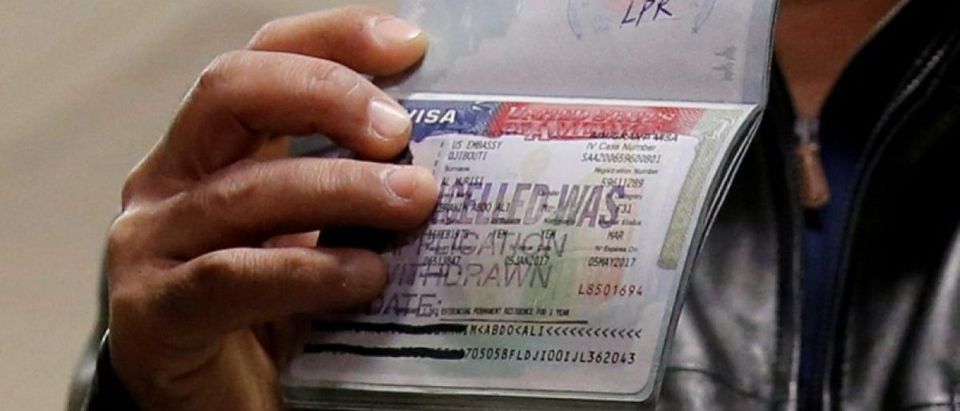President Donald Trump’s second executive order on refugee and migrant entry faces another daunting test this week, as a federal appeals court weighs the fate of a directive administration officials claim is essential to the nation’s continued security.
The 4th U.S. Circuit Courts of Appeals will hear arguments from government lawyers and civil rights advocates Monday, as they vigorously contest a lower court decision temporarily halting the implementation of a key provision of the revised order.
District Judge Theordore Chuang issued a decision in March barring enforcement of a provision of the order that temporarily banned citizens from six countries with significant terrorist presence from entering the United States. The 4th Circuit will review Chuang’s order during Monday’s hearing.
The administration issued its first order on immigrant entry in late January. The order was quickly stayed by several federal courts, after days of chaos and uncertainty at airports all over the country. The hastily-drafted order was widely panned by legal observers for its vague and imprecise language. The president issued a second, narrower order in early March, which is more likely to survive legal scrutiny.
Thirteen of the 4th Circuit’s judges, nine of whom were appointed by Democratic presidents, will participate in Monday’s arguments. For the first time since 1998, the court preemptively decided to hear the case “en banc,” a procedure in which all active judges in a circuit court participate in a case.
Judge J. Harvie Wilkinson III, one of the country’s most prominent conservative jurists, recused himself from the case because he is related to acting Solicitor General Jeffrey Wall, a U.S. Department of Justice official supervising government lawyers arguing the case. Ethics rules require federal judges to recuse themselves from cases featuring lawyers to whom they are related.
The court announced Monday morning that Judge Allyson Kay Duncan, a George W. Bush appointee, had also recused herself from the case. The reasons for her recusal were not immediately clear.
Professor Carl Tobias of the University of Richmond School of Law says the case will likely turn on how the court chooses to frame the controversy.
“I think a lot depends on how the judges view the case,” Tobias told the Associated Press. “Is this a national security case or is this an immigration case? Or is this a religious freedom case?” Should the court evaluate the case within a national security framework, the government is more likely to prevail. Federal courts typically defer to government findings in national security controversies.
Given the intense public interest surrounding Monday’s proceedings, the court will broadcast the hearing through an audio feed available on its website. The court is likely to issue a decision in a matter of weeks, given the urgency and controversy surrounding the order.
Statements Trump made during the campaign are likely to present the greatest challenge to government lawyers. Though the text of the order makes no reference to specific religions, lower courts have found that comments Trump and his surrogates made during the 2016 presidential election evince an intent to discriminate against Islam, or at the very least leave the public with such an impression.
Even if the government prevails in the 4th Circuit, enforcement of the order will still be enjoined by U.S. District Judge Derrick Watson’s order, which found the directive could violate the First Amendment’s establishment clause. Watson’s ruling barred enforcement of the provision concerning travel from six countries with significant terrorist presence, as well as a provision temporarily suspending the refugee resettlement program.
The 9th U.S. Circuit Court of Appeals will review Watson’s ruling during arguments next week.
The legal controversy surrounding the revised order is almost certain to reach the Supreme Court. Regardless of outcome, the losing party is certain to ask the high court to take up their case. Should the 4th and 9th Circuits reach different conclusions with respect to the order, the odds of Supreme Court review will increase significantly.
Send tips to kevin@dailycallernewsfoundation.org.
All content created by the Daily Caller News Foundation, an independent and nonpartisan newswire service, is available without charge to any legitimate news publisher that can provide a large audience. All republished articles must include our logo, our reporter’s byline and their DCNF affiliation. For any questions about our guidelines or partnering with us, please contact licensing@dailycallernewsfoundation.org.


